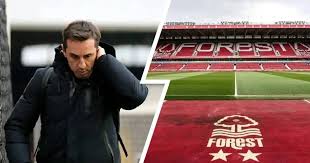The Rise and Impact of Gary Neville in Football

Introduction
Gary Neville is a name that resonates deeply within the world of football. A former professional player turned pundit, his career is a testament to loyalty, excellence, and insight into the beautiful game. His journey from a young lad at Manchester United to becoming a well-respected commentator and analyst is essential for both football enthusiasts and aspiring athletes.
Early Career and Playing Days
Born on February 18, 1975, in Bury, England, Gary Neville started his football journey at Manchester United’s youth academy in the early 1990s. He made his debut in 1992 and quickly established himself as a key player. Over the course of 19 years, Neville made 400 appearances for United, claiming a staggering 20 major honours including eight Premier League titles and two UEFA Champions League trophies. Known for his tenacity, leadership, and tactical awareness, Neville solidified his place in the club’s rich history.
Transition to Punditry
After retiring in 2011, Neville transitioned into media, where his sharp analysis and insightful commentary quickly brought him to prominence. His work with Sky Sports transformed the landscape of football punditry, as he offered a blend of honest assessments and tactical breakdowns, earning respect from viewers and colleagues alike. His ability to communicate complex football strategies in an accessible manner made him a favourite among audiences.
Recent Events and Controversies
In recent years, Neville’s outspoken nature has landed him in various controversies, particularly regarding club management and player conduct. His comments during matches and on social media have brought both praise and criticism. However, this has only reaffirmed his position as a leading voice in football, unafraid to speak out on contentious issues such as player wages, fan engagement, and governance within the sport.
Significance and Influence
Gary Neville’s influence extends beyond the pitch and the broadcast booth. He has taken up significant roles in discussions about the future of football, including advocating for fair treatment of players and sustainable club management. His commitment to charitable causes, particularly in support of youth development in sports, showcases his dedication to giving back to the community.
Conclusion
In conclusion, Gary Neville stands as a significant figure in both the history of Manchester United and the wider football community. His journey from a talented right-back to a influential pundit illustrates the evolution of modern football, where player narratives and media engagement are more interconnected than ever. As he continues to shape discussions around the sport, fans eagerly anticipate what insights and contributions he will bring in the future.









